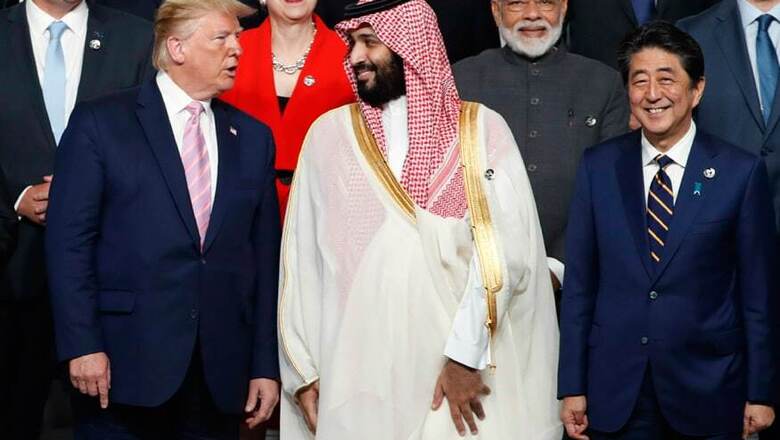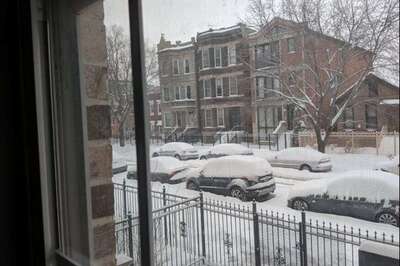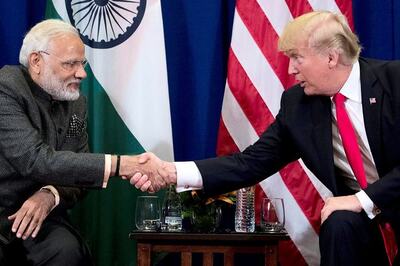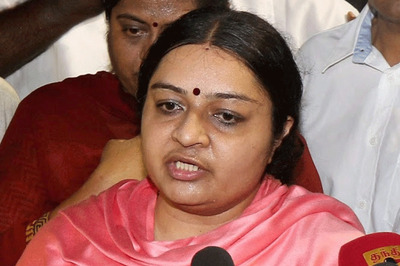
views
Dubai: The weekend drone attack on one of the world's largest crude oil processing plants that dramatically cut into global oil supplies is the most visible sign yet of how Aramco's stability and security is directly linked to that of its owner the Saudi government and its ruling family.
The strikes, which US Secretary of State Mike Pompeo blamed on Iran despite staunch denials by Tehran, led to suspension of more than 5 per cent of the world's daily crude oil production, bringing into focus just how vulnerable the company is to Saudi Arabia's conflicts outside the country's borders, particularly with regional rival Iran.
That matters greatly because Aramco produces and exports Saudi Arabia's more than 9.5 million barrels of oil per day to consumers around the world, primarily in Asia.
It also comes as the state-owned company heads toward a partial public sale. To prepare for an initial public offering, the company has recently taken steps to distance itself from the Saudi government, which is controlled by the Al Saud ruling family.
The plan to list part of Aramco is key to Crown Prince Mohammed bin Salman's economic diversification efforts that are aimed at preparing the kingdom for a future less reliant on oil exports for revenue.
As he races to overhaul the economy, he's also led Saudi Arabia as its defense minister into a war in Yemen that appears to have made the kingdom, and by extension Aramco, more vulnerable to attacks.
The pre-dawn attacks Saturday were claimed by Iranian-backed Yemeni rebels, although there are questions about whether the drones were launched from Yemen.
Saudi Arabia has been at war with the Houthi rebels in Yemen since early 2015, but this is by far the most infrastructurally devastating attack inside the kingdom since the conflict began.
Eurasia Group notes that Saudi Arabia's air defense systems are designed to defend against traditional threats but are ill-equipped to tackle asymmetrical aerial threats from drones.
The attacks targeted Abqaiq processing facility and the Khurais oil field.
Abqaiq is home to the world's largest oil processing facility and crude oil stabilisation plant, where oil is made safe for transport on ships.
Aramco's handling of the incident is being watched closely, particularly amid reports of a local listing of 1 per cent of the company as soon as November.
The public first learned of the attacks from residents of the area who uploaded videos and photos of the massive fires at the processing facility in the eastern city of Buqyaq.
It wasn't until 22 hours later that Aramco issued its own statement, acknowledging its plants had been attacked and that daily production of 5.7 million barrels of crude had been disrupted.
Aramco CEO Amin Nasser was quoted in the brief statement as saying work was under way to restore production and a progress update would be provided in around 48 hours.
The Wall Street Journal cited Saudi officials as saying a third of output would be restored on Monday, but a return to full production may take weeks.
What commodity traders are most looking for now is how long the suspension of production will last.
Aramco has not said what that timeframe might be. Crude oil futures shot up 9.5 per cent to USD 60 after trading opened Sunday evening in New York, a dramatic increase.
The sustainability of the rally will hinge on an assessment of the magnitude and duration of the supply shortfall, said Vandana Hari, founder of Singapore's Vanda Insights.
Hari said potential investors in Aramco are going to be looking at the company's transparency and communication practices in this current crisis.
"Having said that, it's clear that Aramco does not operate independently from the government and is not free to manage its own messaging," she said.
The loss of more than 5 per cent of the world's oil supply - no matter for how many days - is not an internal Saudi matter, she said.
"It is the whole world's concern. With that in view, the official communication on the matter has fallen woefully short so far."
Hasnain Malik, head of equity strategy research at the Tellimer investment research and advisory firm, said the attacks demonstrate the security risks "which should be baked into the valuation of Aramco."
The Saudi crown prince has set Aramco's valuation at around USD 2 trillion, but many estimates put it at closer to USD 1.5 trillion.
Ranjith Raja, a lead analyst at Refinitiv, said a major disruption to Aramco's processing plant will have an effect on the company's ability to meet client expectations and contract requirements.
Already, ship tracking data shows some 16 tankers that can carry 2 million barrels of crude anchored off Saudi Arabia's eastern coast until further notice.
About four ships are loaded each day from Saudi Arabia's main eastern port, but since the attack only two have been loaded and left their docks, Raja said.
The security and stability of Saudi Arabia as one of the world's largest and most vital oil producers was emphasised by US President Donald Trump in a call with the crown prince "to offer his support" to the kingdom after the attacks.




















Comments
0 comment